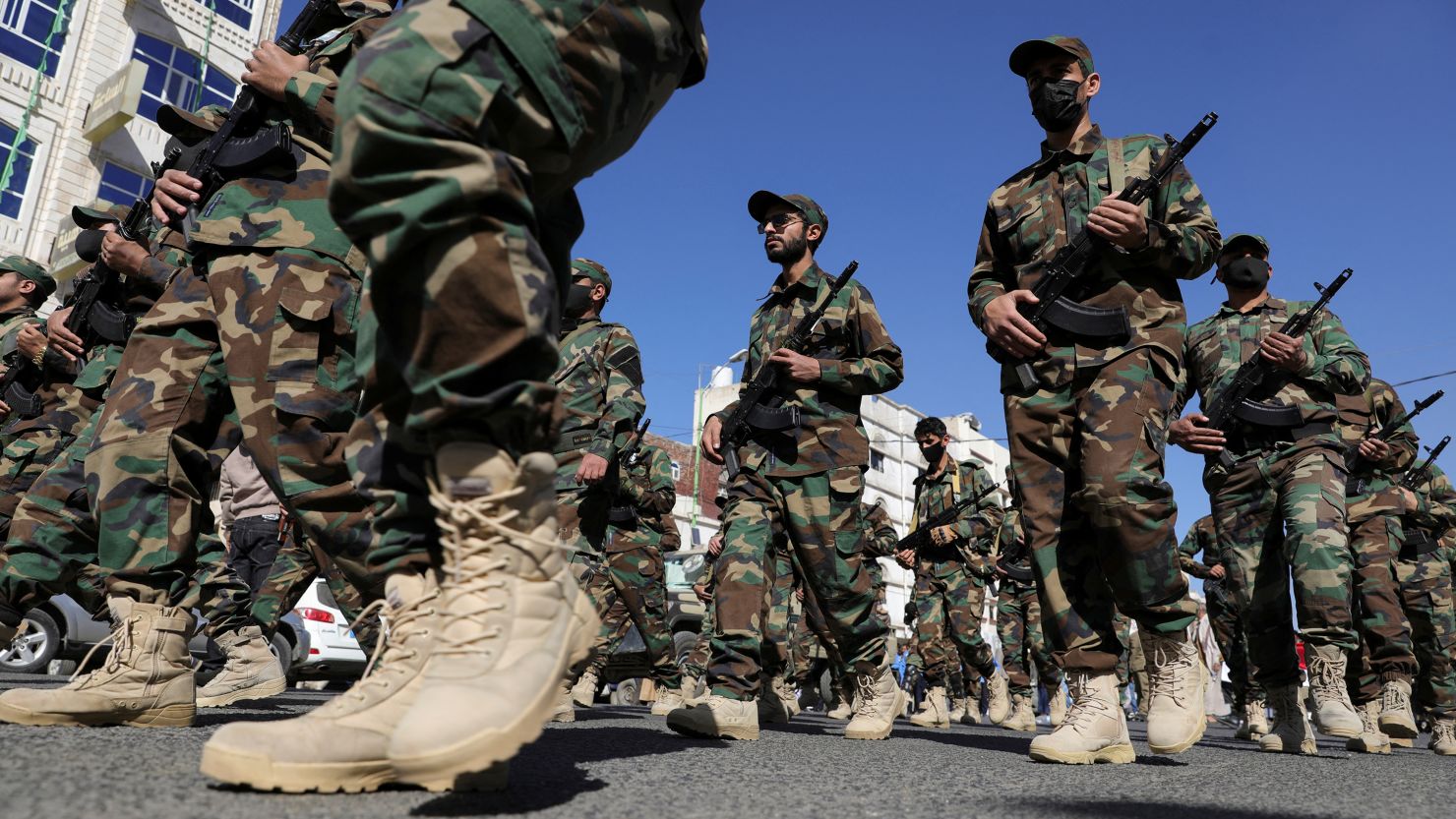Science
Iran Boosts Proxy Groups as US Nuclear Talks Stagnate

Iran’s armed proxies are intensifying their activities across the Middle East as Tehran seeks to reestablish its regional influence, which has suffered due to ongoing military actions from Israel. Recent escalations include Houthi attacks on commercial vessels in the Red Sea and disruptions to oil production in Iraq’s Kurdish region. These developments highlight Iran’s commitment to maintaining a network of armed groups, crucial to its regional strategy, despite ongoing tensions with the United States over nuclear negotiations.
Increased Proxy Activity
The Houthis in Yemen recently ended a period of calm by targeting two commercial ships in the Red Sea, a vital maritime route. This marked a significant shift in their behavior, as they had refrained from such actions for several months. Reports indicate that a vessel carrying 750 tons of Iranian missiles and military equipment was intercepted by forces loyal to Yemen’s exiled government. The United States Central Command labeled this interception the largest weapons seizure in the history of the Yemeni National Resistance Forces (NRF), which oppose the Houthis.
Michael Knights, a senior fellow at The Washington Institute, commented, “Iran was never going to stop resupplying their groups.” He noted that while logistics may pose challenges, the Iranian Revolutionary Guards’ Quds Force aims to demonstrate its ongoing operational capability. Even in the wake of significant losses, including the killing of key military figures in an Israeli strike, Iran persists in arming its proxies as part of its broader deterrence strategy.
In parallel, suspected Iranian-backed groups have escalated drone strikes against Western interests in Iraq. Aziz Ahmad, an official from the Kurdish Regional Government (KRG), reported that five oil fields, including two operated by US companies, suffered from these attacks. He emphasized that the attacks aim to undermine the KRG’s economic stability, stating, “Now, those same investors are being pushed out in a calculated campaign to economically strangle us.”
Regional Implications and Responses
The situation in Lebanon further illustrates Iran’s waning influence following the October 7, 2023, Hamas attack on Israel. Hezbollah, Iran’s primary ally in the region, has struggled to maintain its dominance as it faces increased Israeli military pressure and internal demands for disarmament. The group has lost significant ground, particularly after the death of its leader Hassan Nasrallah in an Israeli strike the previous year.
Despite the setbacks, some analysts suggest that Hezbollah may regroup in response to mounting pressures. A regional source indicated that Hezbollah is in an “existential situation,” grappling with both external threats and internal dissent. Iran’s continued efforts to supply arms to Hezbollah, even amid challenges, reflect its intent to leverage these groups in future negotiations.
In Syria, Iranian attempts to rearm Hezbollah have been complicated by increased scrutiny from the Syrian government. Reports from the Syrian Interior Ministry indicate that several attempts to smuggle weapons into Lebanon have been intercepted, including a recent seizure of anti-tank missiles hidden in a truck.
The backdrop of these developments sees US President Donald Trump signaling a lack of urgency in negotiations with Iran. He stated, “They want to negotiate badly. We’re in no rush.” This sentiment was echoed by Ali Larijani, a senior adviser to Iran’s Supreme Leader, who asserted that current conditions are not conducive to talks.
Experts suggest that Iran’s strategy of bolstering its proxy forces may serve as leverage in any future negotiations with the United States. Michael Knights emphasized that showcasing military resilience can enhance Tehran’s negotiating position, despite its recent losses.
As the situation evolves, the interplay of military actions and diplomatic efforts will likely continue to shape the landscape of the Middle East, with significant implications for regional stability and international relations.
-

 Technology4 months ago
Technology4 months agoDiscover the Top 10 Calorie Counting Apps of 2025
-

 Health2 months ago
Health2 months agoBella Hadid Shares Health Update After Treatment for Lyme Disease
-

 Health3 months ago
Health3 months agoErin Bates Shares Recovery Update Following Sepsis Complications
-

 Technology3 weeks ago
Technology3 weeks agoDiscover 2025’s Top GPUs for Exceptional 4K Gaming Performance
-

 Technology2 months ago
Technology2 months agoElectric Moto Influencer Surronster Arrested in Tijuana
-

 Technology4 months ago
Technology4 months agoDiscover How to Reverse Image Search Using ChatGPT Effortlessly
-

 Technology4 months ago
Technology4 months agoMeta Initiates $60B AI Data Center Expansion, Starting in Ohio
-

 Technology4 months ago
Technology4 months agoRecovering a Suspended TikTok Account: A Step-by-Step Guide
-

 Health4 months ago
Health4 months agoTested: Rab Firewall Mountain Jacket Survives Harsh Conditions
-

 Lifestyle4 months ago
Lifestyle4 months agoBelton Family Reunites After Daughter Survives Hill Country Floods
-

 Technology3 months ago
Technology3 months agoUncovering the Top Five Most Challenging Motorcycles to Ride
-

 Technology4 weeks ago
Technology4 weeks agoDiscover the Best Wireless Earbuds for Every Lifestyle





















